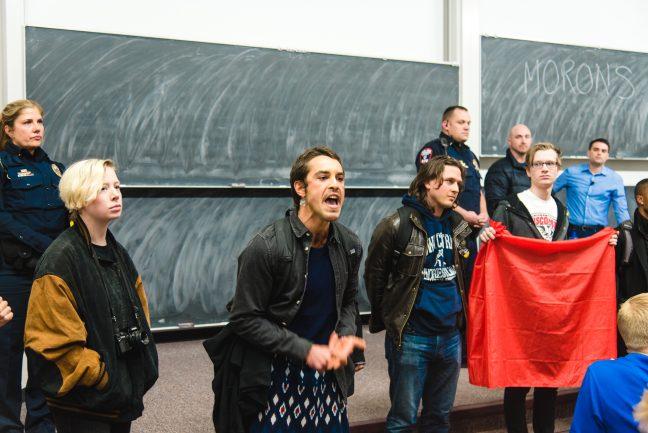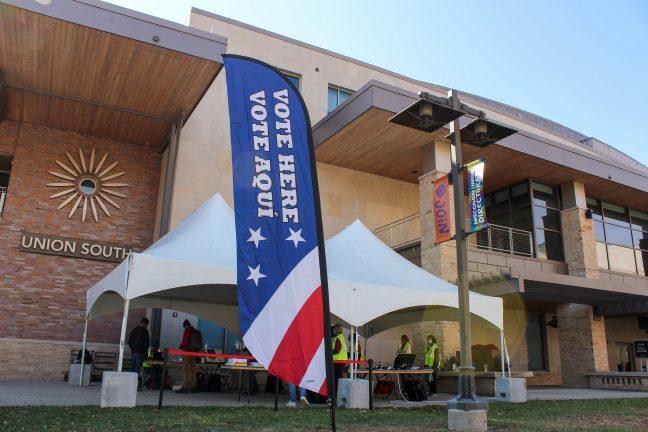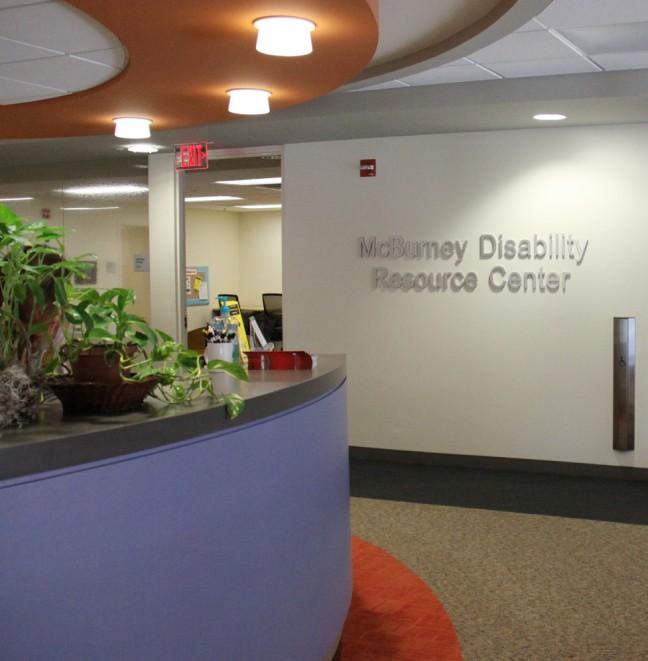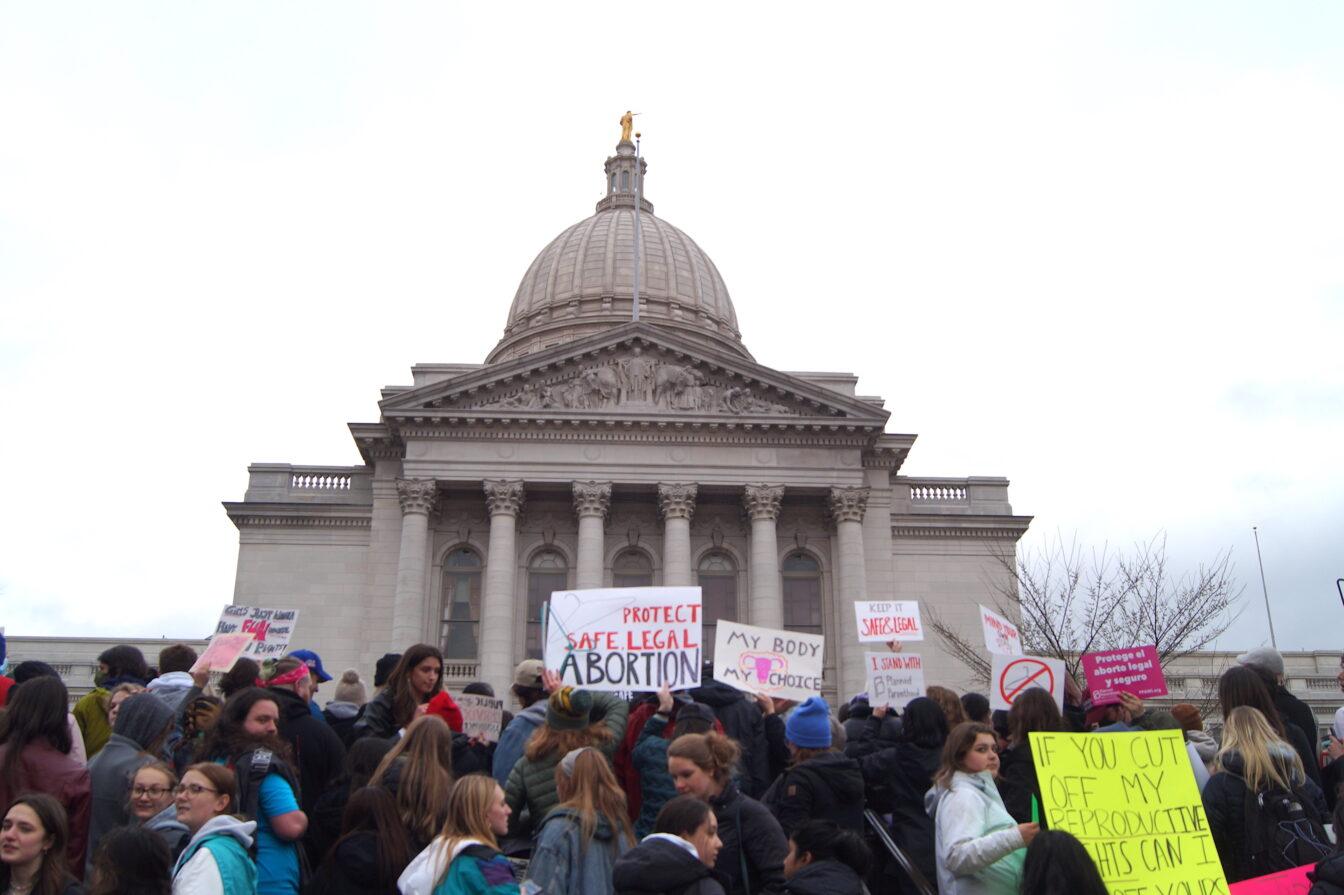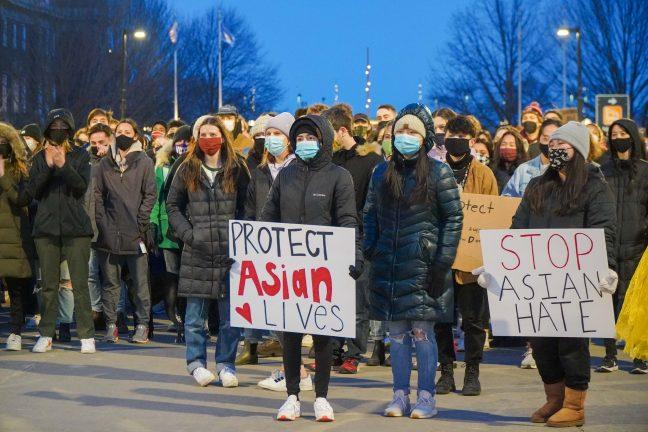American universities are in intellectual turmoil. Last month, Middlebury College students erupted in anger at lecture by the conservative social scientist Charles Murray. Protesters didn’t let him speak at all. Who could blame them? Sure they were rude, but don’t they have the right to refuse to be a docile audience? After all, Murray is the author of “Bell Curve,” a book that, at a scientific remove, seems to infer certain ethnic groups just aren’t as smart as white people; a social studies tract that reeks of “separate but equal,” the Klan or worse.
The University of Wisconsin has not been left out of this spasm against unsavory opinion. Shortly after President Donald Trump’s victory last November, protesters interrupted former Breitbart editor Ben Shapiro’s lecture for daring to question the benefits of campus “safe spaces.” Shrill volleys of “shame” and “decency” rang through the Humanities building lecture hall, effectively ending Shapiro’s talk. Last month, a Daily Cardinal op-ed offered an argument, albeit shallow, against moral equivalency and was later denounced by the publication after its author was personally attacked by hundreds on social media. The lines are drawn.
Many regard the campus lurch toward censure as a self-righteous tantrum. Conservative columnist Andrew Sullivan called campus demonstrators a “smelly little orthodoxy” that refuses to engage with other beliefs. Bill Maher, hardly a man of the right, saw the Middlebury protests and said, “I worry that liberalism is at a perilous point.” It’s a worry starting to permeate UW students too.
That’s exactly the kind of guy I was seated adjacent to at Memorial Union last week. He interrupted the girl seated across from him. “Have you read ‘The Coddling of the American Mind’ in The Atlantic?” he asked, referring to the 2015 critique of certain students’ need to wall themselves off from incongruous opinion. When she answered no, he lectured on with a self-satisfied furl of the lower lip.
“It really explains a lot of what’s going on,” he said. “It’s really good. Even Obama recommended it.”
The other end of opinion holds that campus demonstrators are doing the only sensible thing by using their free speech to bludgeon hairy views into silence. But when one group’s free speech shuts down another’s, who’s in the right? It’s hard to know where to stand.
One who did know was Harold Bloom, a University of Chicago professor and author of “The Closing of the American Mind.” Yes, there’s that title again, closely aped by the article mentioned back in Memorial Union’s coffee shop. Bloom’s 1987 surprise bestseller is the granddaddy of the “What has gone wrong with our kids now?” genre of cultural analysis.
At its core, the book argues healthy intellectual discourse on college campuses must invite “us to the quest for knowledge and certitude, for which history and the various cultures provide a brilliant array of examples for examination.” He took aim at multiculturalism as an intellectual framework too hesitant to attach value judgments to mores outside the Western canon. Bloom’s colleague Saul Bellow, a Nobel laureate in literature who briefly did graduate work at UW wrote a glowing introduction for the book.
UW students express concern over Walker’s proposal to protect controversial speech
“It will be difficult for nettled colleagues to wave [Bloom] away, and many will want to do just that, for he is shrewd and mettlesome, as well as learned … a front-line fighter in the mental wars of our times,” Bellow wrote. Though a Trotskyist and a part of the Partisan Review crowd in his early years, the Bellow of the 1980s taunted the left.
With questions like, “Who is the Tolstoy of the Zulu?” his message to the multicultural academy was clear: Your refusal to search for truth at a remove is diluting the culture.
The idea was that in this chaos, a person with a certain intellect could tease truth and nobility from the disparate and often contradictory streams of morals, religions and oft-repugnant ideologies whose journey terminated on the grass of the campus quad.
“In a short time he must learn that there is a great world beyond the little one he knows, experience the exhilaration of it and digest enough of it to sustain himself,” Bloom wrote. Through this lens, the students shouting down lecturers or demanding ideological rigidity from their school paper are not partaking in education or pursuing truth. The Daily Cardinal op-ed was assailed as “racist” immediately after publication.
Conservative pundit Ben Shapiro lectures to turbulent crowd on safe spaces, freedom of speech
If you buy Bloom’s argument, and many do, the mob that shouted the op-ed down denied itself the Socratic quest for truth by practicing complete openness to the religion in question and hesitating to assign a value to its tenants.
The argument seems sound. To defend it, all you have to do is position the university as the ideal battleground of ideas. You could point to right-wing talk radio — a black hole of marooned ideology if there ever was one — and ask what it’s done to the GOP.
But what if, by turning their backs and telling the speakers and op-ed writers to shut up, college demonstrators are performing an immense service? Instead of denying the Socratic exchange of ideas, they are taking part in it by refusing to idle quietly while bigotry saunters forward.
It’s difficult to tell if the demonstrators or the Andrew Sullivans of the world are correct. It is easy, however, to tell where the arguments being shouted down stand. The students who refused a man whose book has helped perpetuate the kind of scientific racism that justifies depriving minority neighborhoods of funding for things like schools. Breitbart played a large role in Trump’s rise and any club-footed attempt to simplify religious ideology to sketch caricature is bound to activate fearful resentment in those predisposed to bigotry.
But are these campus offenses grotesque enough to sanction the culling of speech and leave the embers of the search for truth to die out? I don’t know.
Lucas Sczygelski ([email protected]) is a junior majoring in history and political science.








